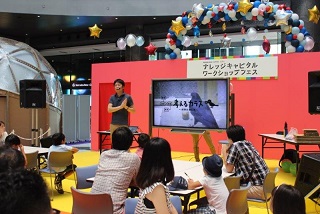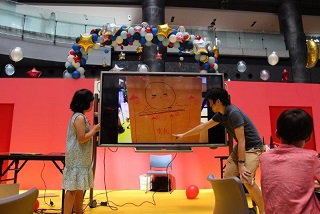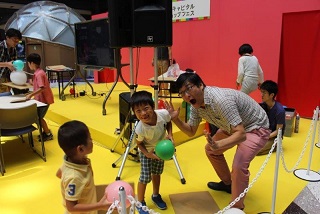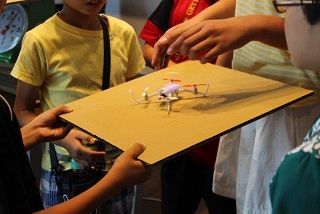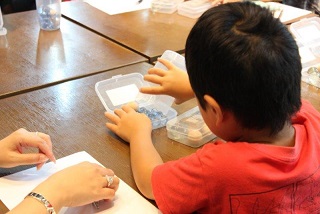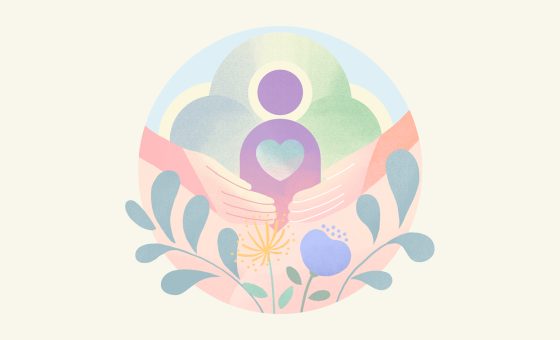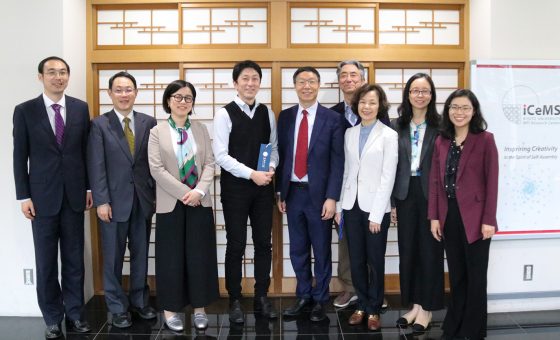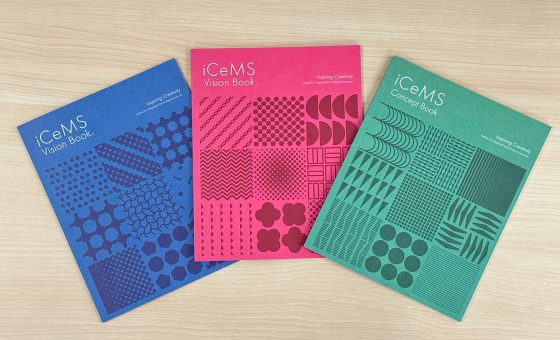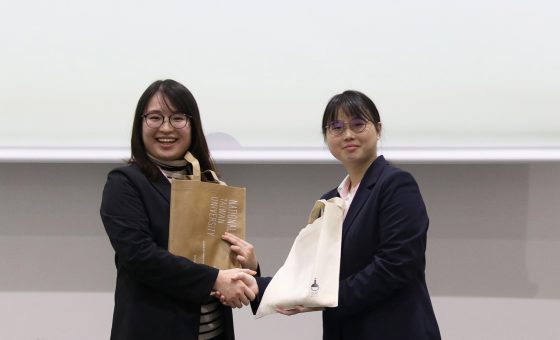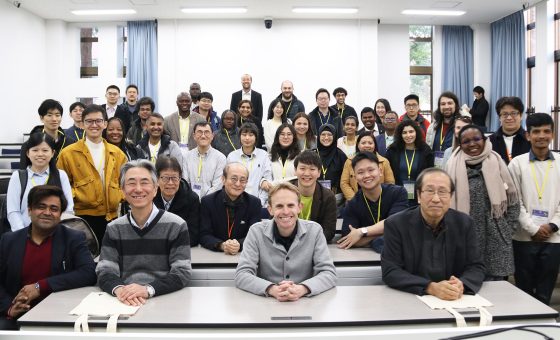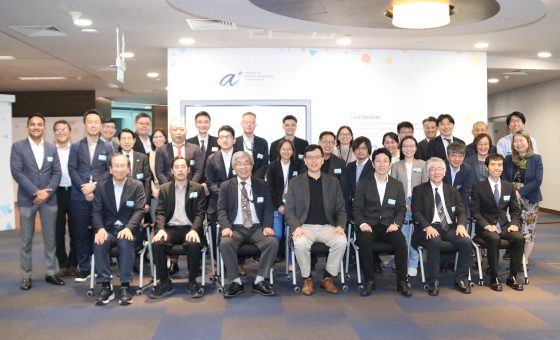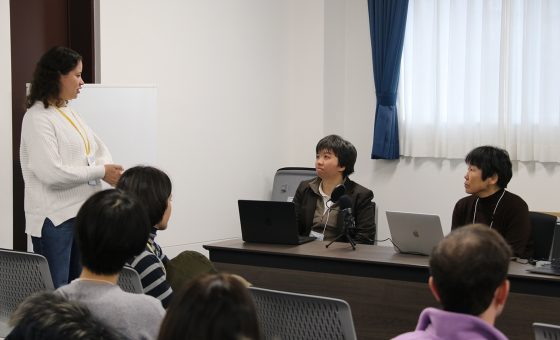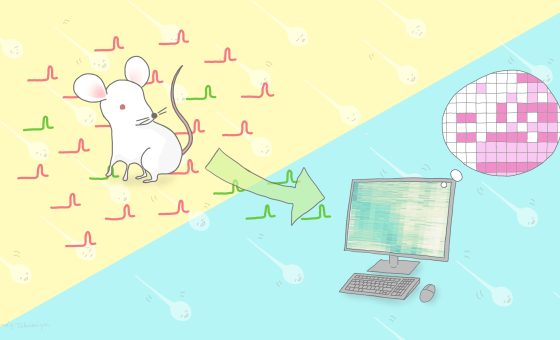Knowledge Capital Workshop Fes, Summer 2016: “Let’s Think about It from Here” with NHK E-Tele “Think Like a Crow!”
On August 13, a workshop titled “Let’s Think about It from Here” was held, using programs from the NHK Educational Television series “Think Like a Crow.” Elementary school children (grades 3–6) from 25 families participated along with their parents: seven families (16 people) in the beginner course, eight families (16 people) in the intermediate course, and 10 families (20 people) in the advanced course.
Serving as facilitators for the workshop were Dr. Kei Kano (Specially Appointed Associate Professor, iCeMS Science Communication Group) for the beginner course, Mr Yasuyuki Kashima (undergraduate student, Shiga University) for the intermediate course, and Mr. Yuma Doi (undergraduate student, Shiga University). In the first session of each course, participants watched a different episode of the “Think Like a Crow” program series.
Families in the beginner course, called “A Tray and a Balloon,” watched Episode 2 “Thinking Practice” of the “Think Like a Crow” series, and considered the question, “Why do a tray and a balloon drop at the same speed?” Those in the intermediate course, titled “A Drone and a Scale,” watched Episode 12 “Careful Observation” and were asked, “Why does the scale not change even when the drone hovers off of it?” The advanced course, “Sesame and Salt,” had participants watch Episode 17 “Careful Observation” and consider the question, “Why do the sesame seeds and salt blend well together in gomashio (sesame-salt) seasoning?”
Dr Masakazu Higuchi (Program-Specific Assistant Professor, iCeMS Kitagawa Lab) joined in the beginner course with his sons, and Dr Hiromi Shimojo (Program-Specific Research Center Assistant Professor, iCeMS Kageyama Lab) participated in the intermediate and advanced courses, offering comments at the end. Dr. Higuchi stated, “Many researchers consider questions and try to find answers to them every day. It is very important to share ideas with others. Doing so sometimes leads to new findings.” Dr Shimojo observed, “When we conduct research, we sometimes arrive at results different from what we expected. When this happens, we don’t couples their bad luck – it can be good because now we can consider another hypothesis based on the unexpected results.”
Researchers spend many years solving the mysteries of science. The scientific process of investigating things and finding better answers is not specific only to scientists; it is something that you do in many aspects of your own daily life. If you polish your investigative skills, you too may become a researcher some day.
Text and Photo: iCeMS Science Communication Group
